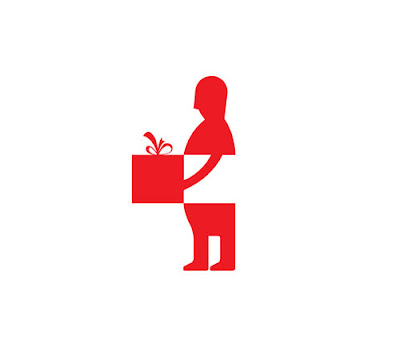By Keith Tidman
According to current data, in the United States alone, some 107,000 people are now awaiting a life-saving organ transplant. Many times that number are of course in similar dire need worldwide, a situation found exasperating by many physicians, organ-donation activists, and patients and their families.
The trouble is that there’s a yawning lag between the number of organs donated in the United States and the number needed. The result is that by some estimates 22 Americans die every day, totaling 8,000 a year, while they desperately wait for a transplant that isn’t available in time.
It’s both a national and global challenge to balance the parallel exigencies — medical, social, and ethical — of recycling cadaveric kidneys, lungs, livers, pancreas, hearts, and other tissues in order to extend the lives of those with poorly functioning organs of their own, and more calamitously with end-stage organ failure.
The situation is made worse by the following discrepancy: Whereas 95% of adult Americans say they support organ donation upon a donor’s brain death, only slightly more than half actually register. Deeds don’t match bold proclamations. The resulting bottom line is there were only 14,000 donors in 2021, well shy of need. Again, the same worldwide, but in many cases much worse and fraught.
Yet, at the same time, there’s the following encouraging ratio, which points to the benefits of deceased-donor programs and should spur action: The organs garnered from one donor can astoundingly save eight lives.
Might the remedy for the gaping lag between need and availability therefore be to switch the model of cadaveric organ donation: from the opt-in, or expressed-consent, program to an op-out, or presumed-consent, program? There are several ways that America, and other opt-in countries, would benefit from this shift in organ-donation models.
One is that among the many nations having experienced an opt-out program — from Spain, Belgium, Japan, and Croatia to Columbia, Norway, Chile, and Singapore, among many others — presumed-consent rates in some cases reach over 90%.
Here’s just one instance of such extraordinary success: Whereas Germany, with an opt-in system, hovers around a low 12% consent rate, its neighbour, Austria, with an opt-out system, boasts a 99% presumed-consent rate.
An alternative approach that, however, raises new ethical issues might be for more countries to incentivise their citizens to register as organ donors, and stay on national registers for a minimum number of years. The incentive would be to move them up the queue as organ recipients, should they need a transplant in the future. Registered donors might spike, while patients’ needs have a better hope of getting met.
Some ethical, medical, and legal circles acknowledge there’s conceivably a strong version and a weak version of presumed-consent (opt-out) organ recovery. The strong variant excludes the donor’s family from hampering the donation process. The weak variant of presumed consent, meanwhile, requires the go-ahead of the donor’s family, if the family can be found, before organs may be recovered. How well all that works in practice is unclear.
Meanwhile, whereas people might believe that donating cadaveric organs to ailing people is an ethically admissible act, indeed of great benefit to communities, they might well draw the ethical line at donation somehow being mandated by society.
Another issue raised by some bioethicists concerns whether the organs of a brain-dead person are kept artificially functional, this to maximize the odds of successful recovery and donation. Doing so affects both the expressed-consent and presumed-consent models of donation, sometimes requiring to keep organs animate.
An ethical benefit of the opt-out model is that it still honours the principles of agency and self-determination, as core values, while protecting the rights of objectors to donation. That is, if some people wish to decline donating their cadaveric organs — perhaps because of religion (albeit many religions approve organ donation), personal philosophy, notions of what makes a ‘whole person’ even in death, or simple qualms — those individuals can freely choose not to donate organs.
In line with these principles, it’s imperative that each person be allowed to retain autonomy over his or her organs and body, balancing perceived goals around saving lives and the actions required to reach those goals. Decision-making authority continues to rest primarily in the hands of the individual.
From a utilitarian standpoint, an opt-out organ-donation program entailing presumed consent provides society with the greatest good for the greatest number of people — the classic utilitarian formula. Yet, the formula needs to account for the expectation that some people, who never wished for their cadeveric organs to be donated, simply never got around to opting out — which may be the entry point for family intervention in the case of the weak version of presumed consent.
From a consequentialist standpoint, there are many patients, with lives hanging by a precariously thinning thread, whose wellbeing is greatly improved (life giving) by repurposing valuable, essential organs through cadaveric organ transplantation. This consequentialist calculation points to the care needed to reassure the community that every medical effort is of course still made to save prospective, dying donors.
From the standpoint of altruism, the calculus is generally the same whether a person, in an opt-in country, in fact does register to donate their organs; or whether a person, in an opt-out country, chooses to leave intact their status of presumed consent. In either scenario, informed permission — expressed or presumed — to recover organs is granted and many more lives saved.
For reasons such as those laid out here, in my assessment the balance of the life-saving medical, pragmatic (supply-side efficiency), and ethical imperatives means that countries like the United States ought to switch from the opt-in, expressed-consent standard of cadaveric organ donation to the opt-out, presumed-consent standard.
